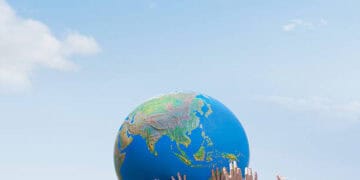As global geopolitical tensions grow, Africa is becoming an increasingly important focus for key global players. African leaders are also making strategic decisions to drive economic development and meet the promises they made during their election campaigns. These leaders aim to modernize agriculture, harness untapped resources, create jobs for the youth, and boost economic growth. However, achieving these goals requires effective external collaboration and wise partnerships with genuine stakeholders. In the current landscape, it’s essential to examine how geopolitical shifts affect Africa’s unity and development. Africa has struggled to achieve economic progress despite its abundant natural and human resources.
Leadership attitudes, foreign relations, and historical ties with former colonial powers have all played roles in this complex scenario. Russia and China, for example, have distinct approaches to Africa. China has invested significantly in infrastructure and various sectors across the continent, while Russia has expressed concerns about what it sees as “neo-colonialism” and aims to regain Soviet-era influence in Africa. The South African Institute of International Affairs has highlighted aspects of Russia’s approach in a recent policy report. It points out that Russian elites have used anti-colonialism narratives as part of their current policy to shape perceptions among Africans and project power in the continent.
However, Russia’s economic influence in Africa remains limited compared to other global players. It’s worth noting that while anti-Western sentiments are still present in Russian communication with Africa, the continent needs practical trade and investment more than political rhetoric. Sustainable development in Africa requires genuine economic engagement, knowledge transfer, and investment. There are concerns about Russia’s role in Africa, including claims of encouraging kleptocracy and autocracy. Some view Russia as a neo-colonial power disguised as an anti-colonial advocate. As Africa navigates the complex geopolitical landscape, it’s crucial to distinguish between rhetoric and concrete actions.
Russia’s second Africa summit in July 2023 provides an opportunity to reflect on progress and address challenges. Collaboration between global powers, including Russia, should focus on knowledge transfer, technology partnerships, and investments that benefit Africa’s economic growth. While colonialism has historical complexities, good governance and economic growth should take precedence over sovereignty. African leaders must prioritize building human capital and improving the investment climate to attract Western investment and engage with global players more effectively. As global powers vie for influence in Africa, it’s essential not to take the continent’s support for granted. Russia’s policy strategies and implementation challenges have been noticeable in many African countries.
While Russia has historical ties with some African nations, nostalgia for the Soviet era is diminishing among newer generations of leaders. As Africa focuses on democratization and economic emancipation, Russia must take its foreign economic policy initiatives seriously. The African Continental Free Trade Area (AfCFTA) offers opportunities for economic diplomacy and collaboration between Russia and Africa. While Russia’s economic presence in Africa is currently limited, AfCFTA could provide a framework for mutually beneficial cooperation. In summary, robust economic cooperation should be the cornerstone of Russia’s relations with Africa. Paying attention to AfCFTA and focusing on economic engagement, knowledge transfer, and infrastructure development can open new doors for Russia-Africa relations. African leaders should recognize Russia’s global aspirations and engage strategically in the evolving multipolar world.
Discover comprehensive supply chain report news insights at The Supply Chain Report. For international trade resources, visit ADAMftd.com.
#AfricaGeopolitics #AfricanEconomicDevelopment #GeopoliticalShifts #RussiaInAfrica #ChinaInAfrica #SovietEraInfluence #AfCFTA #SustainableDevelopment #EconomicGrowthAfrica #GlobalPartnerships #KnowledgeTransfer #InvestmentOpportunities #TechPartnerships #AfricaUnity #GoodGovernance #YouthEmployment #AgricultureModernization #InfrastructureDevelopment #ForeignRelationsAfrica #AfricaGlobalPlayers #EconomicDiplomacy #RussiaAfricaSummit #StrategicLeadership #AutocracyConcerns #NewAfricaLeadership #MultipolarWorld
















